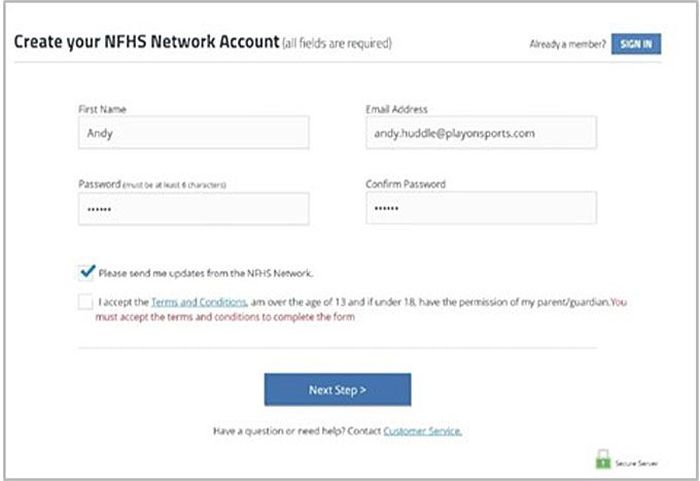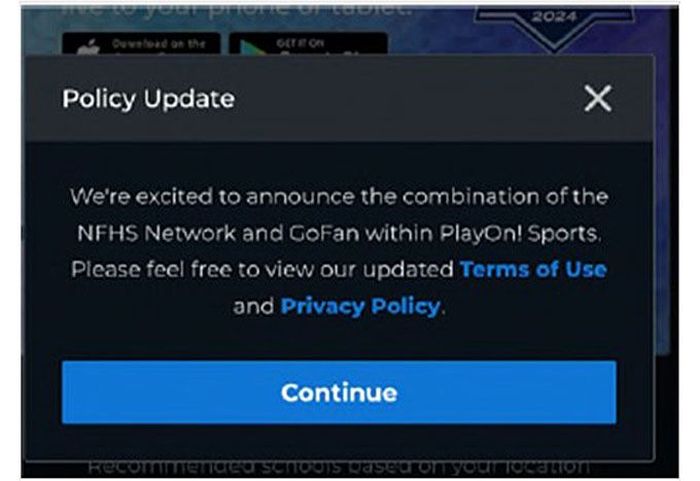- within Environment topic(s)
- in Europe
Paddle Manufacturer in a Pickle: First Game to Plaintiffs in Consumer Protection Suit over Allegedly Mislabeled Pickleball Paddles
Sport Squad, Inc. ("Sport Squad"), a pickleball paddle manufacturer, has found itself in a pickle after a Florida district court allowed various state consumer protection claims to proceed over allegations that Sport Squad sold pickleball paddles it believed were certified by USA Pickleball even though, due to an apparent administrative error and what Sport Squad deemed a later "wrongful" decertification, the final paddle products were ultimately uncertified by the national governing body. (Matus v. Sport Squad, Inc., No. 24-60954 (S.D. Fla. Dec. 17, 2024)). The popular sport of pickleball is considered social and low-impact because it can be enjoyed recreationally by all ages, but this particular lawsuit is shaping up to be a match between two bangers instead of an exchange of dink shots over the net – not so "social" after all.
Sport Squad is the parent company of Joola, a brand that sells table tennis and pickleball equipment, and is what the court described as a "leader in the design, development, manufacture, and distribution of pickleball paddles and accessories." The complaint alleges that in the fall of 2023, Sport Squad submitted eleven model prototype paddles to USA Pickleball ("USAP"), the national governing body for the sport of pickleball. The designs were subsequently approved by USAP, which indicated the paddles could be stamped as "USA Pickleball Approved." However, in April 2024, after the paddles had been manufactured and were scheduled to go on sale, USAP allegedly notified Sport Squad that it had concerns that the paddles did not comply with their standards. Joola later issued a statement that due to an "administrative error," it had submitted the wrong paddles for certification but that the paddles it sold were merely "market versions" of paddles previously approved by USAP. Following the paddle's release, USAP decertified them in May 2024 (meaning the paddles could not be used in USAP-sanctioned tournaments).
Walking onto the court, Plaintiff Greg Matus ("Matus" or "Plaintiff") stated he purchased two of the Joola paddles at issue in April 2024, marketed at a retail price of $279.95 and brandished with the USAP Approved stamp. The Plaintiff stated that he would not have purchased the subject paddles if he had known they were not approved by USAP, later filing a putative class action suit in June 2024. His amended complaint against Sport Squad characterized Sport Squad's sales of the paddles as a "quintessential bait and switch" and asserted various causes of action: (1) unjust enrichment, (2) breach of express warranty, (3) breach of implied warranty, and (4) a violation of the Florida Deceptive and Unfair Trade Practices Act ("FDUTPA"), a consumer protection statute.
Sport Squad tells a different story from its side of the net. According to Sport Squad, in September 2023, it submitted two prototype base paddle designs to USAP, which were approved. Subsequently, Sport Squad sent nine additional "market versions" of the two USAP-certified base paddles (featuring different shapes and graphics) for testing to ensure the market versions were "structurally and functionally identical" to the prior-approved base models. These versions also received approval. Sport Squad then purportedly manufactured over 100,000 of these next-gen paddles. However, a month after the paddles went on sale, Sport Squad claims USAP moved to decertify the next-gen paddles. after Sport Squad self-reported its error in originally sending the wrong paddles for certification back in 2023. In response, the company resubmitted the correct market versions for retesting on an expedited basis. To Sport Squad's surprise, USAP rejected the resubmitted paddles in late May 2024 as failing to meet testing standards. Sport Squad places the blame for any of Plaintiff's harms on USAP and alleges that the resubmitted paddles that had been sold in the market should have easily passed the "similarity tests" because the company claims the designs were USAP-compliant and were "structurally and functionally identical" to the base paddle designs approved in September 2023 (and, according to Sport Squad, the paddles were rejected without adequate prior notice as required under USAP's rules).
The dispute has turned into a round robin of sorts with Sport Squad having filed a separate suit against USAP in June 2024 over the paddle decertification. Adding to the mix, on January 6, 2025, Sport Squad filed a third-party complaint in the Matus suit to implead USAP (now a Third-Party Defendant in the Matus suit), alleging that USAP's "unfounded" decertification was the cause of any harm to the Plaintiff and seeking relief for common law indemnification and contribution from USAP so that any damages that are awarded to the Plaintiff are "allocated to the party that is actually at fault for causing those losses." This third-party complaint brings the national association into the "kitchen," or caption, of the Matus lawsuit.
In the original suit, Sport Squad moved to dismiss, arguing that the warranty claims should fail because Plaintiff did not give Sport Squad pre-suit notice of any warranty violations and that Plaintiff lacked standing for certain claims based on allegations of non-Florida law. Defendant also argued that Plaintiff merely advanced "conclusory" allegations that Sport Squad "knew" USAP would later decertify the paddles at issue and did not plead sufficient facts to show a "deceptive" act under FDUTPA; Sport Squad also stressed that when Plaintiff purchased the paddles they were still USAP-certified and that Plaintiff could not reasonably allege a certified paddle would retain its certification indefinitely, given that USAP could change standards or re-evaluate paddles in the future.
In December 2024, the Florida district court trimmed Plaintiff's suit but allowed the principal claims to go forward. The court dismissed the breach of express warranty and breach of implied warranty counts with prejudice because Plaintiff did not notify Sport Squad within a reasonable time after discovery of the breach. However, the court declined to dismiss the primary consumer protection claims of unjust enrichment and violations of FDUTPA. The court also found that it was premature to dismiss any possible consumer protection claims based on non-Florida law at this juncture, as such an argument would be more appropriately considered during class certification proceedings rather than at the current stage of litigation.
In addition, the court held that Plaintiff pled a plausible claim under FDUTPA because the paddles bore a USAP stamp, implying they were certified by USAP. The court reasoned, "Certainly, improperly labeling a product as certified by USAP causes a consumer who wants to purchase a USAP certified paddle to purchase a paddle they otherwise would not have purchased."
Finally, the claim of unjust enrichment survived dismissal because the court found that it was not duplicative of the FDUTPA claim and that Plaintiff sufficiently alleged that he conferred a benefit to the Defendant and that it profited from the sale of the paddles in an inequitable manner, meeting the unjust enrichment standard at least at this early stage of the litigation.
As it stands, Matus's causes of action alleging unjust enrichment, a violation under FDUTPA and potential future consumer claims under non-Florida law will rally forward. The story here is particularly complicated, and it will be challenging to determine which party, if any, is at fault for plaintiff's claims. But hopefully, discovery will help clarify how the parties got themselves into this pickle.
Streamlining Disputes: Judge Compels Arbitration for Putative Class Action Against High School Sports Streaming Service
On November 20, 2024 – as the curtain closed on high school football, girls volleyball and cross country season – a California district court sent to arbitration a class action suit alleging a high school sports streaming service, NFHS Network ("NFHS"), unlawfully sent users' video-viewing data to third parties without consent in violation of the federal Video Privacy Protection Act ("VPPA"). (Kasper v. NFHS Network, LLC, No. 24-04682 (N.D. Cal. Nov. 20, 2024)). For the plaintiff, Steven Kasper ("Kasper"), there was to be no home courting. Instead, the court granted NFHS's motion to compel arbitration and found that Kasper agreed to terms of use that contained a mandatory arbitration clause for any disputes over use of the service when he signed up for an account on NFHS's website.
Kasper's claims relate to his use of the NFHS service, which allows users to stream selected live and on-demand high school sports that are recorded manually or with an AI-powered camera system. NFHS subscriptions allow viewer access to all content on the platform and subscribers can create and share video clips; participating coaches and administrators can watch for free. In 2016 Kasper created a NFHS account to watch games from his former high school. During the account creation process, he purportedly clicked a box indicating that he accepted and agreed to the site's Terms of Use ("TOU"), which contained an arbitration clause. The contracting process required users to affirmatively check a box agreeing to the TOU to complete account registration. [See below screenshot from NFHS's motion papers.] Months later, and at various other times, Kasper had active paid subscriptions on the site.

The arbitration clause in the TOU states that NFHS and its viewers agree to submit "any controversy or claim arising out of relating to this agreement, the Service, or any alleged breach of this agreement, or any other controversy or claim between the parties, solely and exclusively to arbitration administered by the American Arbitration Association ('AAA') in accordance with its Commercial Arbitration Rules."
Over the ensuing seasons, while Kasper remained an active site account holder, the TOU was updated several times, with each version of the terms containing what the court termed "a materially similar arbitration clause." NFHS stated that after the 2022 TOU update, NFHS pushed a cookie banner to users informing them of such a change. [See image below from NFHS's motion papers]. According to NFHS, Kasper's last paid subscription period was from February 2023 until May 2024.

In February 2024, Kasper filed suit in California district court claiming that NFHS disclosed users' video viewing habits and activities to third parties without consent through site tracking software, advancing claims under the VPPA and California consumer protection laws. Subsequently, NFHS moved to dismiss and compel arbitration, arguing that Kasper's initial agreement to the site's TOU and his continued use of the service "confirmed his agreement" to the TOU and its arbitration clause. In opposition papers, Kasper countered, among other things, that he did not assent to the TOU, that the TOU only bound active subscribers (and his sporadic paid subscription periods over the years did not currently bind him to the TOU), and that he had opted out of the arbitration agreement via a post-litigation letter to NFHS.
Kasper's pep rally did not sway the judge and the court granted NFHS's motion to compel arbitration. The court first reasoned that the TOU was broadly worded to govern Kasper's use of the site, whether or not the plaintiff had an active paid subscription, and that "there was no need for a new arbitration agreement to be formed each time Kasper initiated a new period of subscription to NFHS's paid service." Thus, according to the court, even when Kasper's paid subscription expired, the court reasoned that he was still an account holder and "remained subject to its TOU he clicked to accept when he first created his free account in 2016." The initial TOU granted the site flexibility for amendments, stating the "Terms are subject to change on occasion, so you should review these Terms from time to time, as you will be deemed to accept such changes through your continued use of the Service." The court found that Kasper also accepted each of the three updates to the TOU (which all contained similar arbitration clauses) by maintaining an active account and continuing to use the NFHS website during the relevant period.
Overall, the judge found that NFHS met its burden of demonstrating that it provided "reasonably conspicuous notice" of its terms and that Kasper "[took] some action, such as clicking a button or checking a box, that unambiguously manifest[ed] his ... assent to those terms."
The court rejected Kasper's remaining arguments as well. For example, Kasper also claimed that he sent a letter to NFHS in September notifying NFHS of his desire to opt out of the arbitration clause. The judge rejected the argument that the letter was sufficient to meet the requirements of the TOU that became effective on February 14, 2024, which stated that consumers "may opt out of this dispute resolution provision (except for the jury trial waiver above) by notifying NFHS Network of that intent during the Opt-Out Period" at NFHS's address. Kasper argued that the latest TOU does not define the opt-out period, but the court found that his filing suit in February 2024 "did not fit the plain language requirements for opting out" and his post-litigation letter to NFHS, dated September 11, 2024, was not a basis for denying NFHS's motion to compel arbitration (which was filed in August 2024).
Thus, despite some minor shortcomings of NFHS's electronic contracting process, its defensive line held in this case, and team NFHS denied the plaintiff's scoring chance, compelling the claims to arbitration. Although arbitration has yet to take place, NFHS will likely continue to assert that it has played by the rules of its privacy policies and TOU in an effort to counter Kasper's allegations.
Wipeout: Ski Resort's Liability Waiver Leaves Injured Snowboarder Without Recourse
Snowboarder John Litterer ("Litterer") faceplanted in a Colorado state appeals court which affirmed a lower court ruling that found Breckenridge Ski Resort's (the "Resort") liability waiver was enforceable and that Litterer was barred from recovering damages after he collided with a snowmobile while traversing the slopes. (Litterer v. Vail Summer Resorts, Inc., No. 24CA0480 (Colo. App. Jan. 30, 2025)(unpublished)).
Litterer purchased a season pass (an "Epic Pass") at the Resort, owned by Vail Summit Resorts, Inc. ("VSRI"), for the 2020-2021 ski season. In December 2020, after Litterer turned his snowboard onto a trail that was approved for snowmobile traffic, he collided with a snowmobile driven by VSRI employee Dwight McClure ("McClure" and together with VSRI, the "Defendants"). McClure claims that he "saw movement above him in the trees" moments before the collision and attempted to move the snowmobile to the edge of the road to avoid it, colliding into Litterer who said he "had no time to make any moves" in the "one second" before collision. In May 2022, Litterer filed a complaint in Colorado state court against the Defendants, lodging a litany of claims including negligence, negligence per se, extreme and outrageous conduct, willful and wanton conduct, and reckless endangerment.
At the lower court level, the Defendants moved to dismiss on various grounds and were mostly successful, as the court ruled that the Colorado Premises Liability Act preempted Litterer's claims pertaining to negligence and extreme and outrageous conduct, and that Litterer's claims for willful and wanton conduct and reckless endangerment were not cognizable causes of action in Colorado. The trial court did permit a premises liability claim to proceed against VSRI and allowed Litterer to amend his complaint; it also left a negligence per se and related tort claims against McClure alone. Nevertheless, Litterer's run was soon over after Defendants later moved for summary judgment, asserting that Litterer's remaining claims were barred by three liability waivers executed by Litterer. The lower court held that that the exculpatory language related to Litterer's Epic Pass for the 2020-2021 ski season validly barred Litterer's claim for negligence, negligence per se and premises liability and further that Litterer's purchase of another Epic Pass for the 2022-2023 season contained an enforceable release of all his prior claims against the Defendants. The lower court also found that Defendants' conduct was insufficient as a matter of law to support a claim for extreme and outrageous conduct.
On appeal, Litterer principally argued that the trial court erred by granting summary judgment on the negligence per se claim based on the Colorado Supreme Court's recent Miller decision that "ski resorts cannot use signed waivers to absolve itself of liability for per se negligence based on violations of statutory duties imposed by ski safety laws, as allowing ski resorts to escape liability from negligence claims based on violations of such laws ultimately frustrates lawmakers' intent." The Three Point Shot newsletter previously covered this decision in detail (do a 180 to that article now and then jump back here!). However, because the appellate court here concluded that Litterer's claims were barred by the liability waivers and releases contained in the Epic Pass he purchased for the 2022-2023 season, it declined to even go down that trail.
The Epic Pass Litterer purchased online for the 2022-2023 ski season contained the following relevant provisions:
"WARNING: PLEASE READ CAREFULLY BEFORE SIGNING! THIS IS A RELEASE OF LIABILITY WAIVER OF CERTAIN LEGAL RIGHTS INCLUDING THE RIGHT TO SUE OR CLAIM COMPENSATION.
In consideration for allowing the Participant to participate in the Activity [defined to include snowboarding], I FURTHER RELEASE AND GIVE UP ANY AND ALL CLAIMS AND RIGHTS THAT I MAY NOW HAVE AGAINST ANY RELEASED PARTY AND UNDERSTAND THIS RELEASES ALL CLAIMS, INCLUDING THOSE OF WHICH I AM NOT AWARE, THOSE NOT MENTIONED IN THIS RELEASE AND THOSE RESULTING FROM ANYTHING WHICH HAS HAPPENED UP TO NOW."
The Court noted that "the 2022 online waiver defined 'Released Party' to include 'Vail Resorts, Inc., The Vail Corporation, . . . each of their affiliated companies and subsidiaries, the resort owner/operator, [and] all their res[pective] . . . affiliates, agents, employees, representatives, assignees, officers, directors, and shareholders' and released those parties from all liability for 'any injury' arising 'in whole or in part' from Litterer's participation in snowboarding, among other activities."
Litterer's counterarguments all hit the slush: (i) he did not assent to the 2022 online waiver, (ii) it is unconscionable and therefore unenforceable and (iii) it cannot bar his claims. Emphasizing Colorado's policy of freedom of contract and using basic contract formation principles, the Court deemed that there was mutual assent by Litterer and VSRI in entering into the agreement. Litterer failed to develop an argument as to unconscionability "beyond a conclusory allegation that he is penalized by its enforcement," so the Court did not address this point. Finally, the Court found that the 2022 wavier unambiguously released "any and all claims" by Litterer against the Defendants up to that point of time. As explained by the Court, while the 2020 Epic Pass waiver he signed before his accident sought to limit future negligence claims against Defendants, the 2022 Epic Pass waiver and liability release required that Litterer release any and all claims against VSRI and its employees, including claims from past events (such as the vested claims stemming from his 2020 snowboarding accident). The Court ultimately affirmed the lower court's finding that Litterer's purchase, acceptance and use of the 2022 Epic Pass was sufficient conduct to demonstrate his assent to the terms of the 2022 waiver such that a valid contract was formed.
While we previously wrote that the Colorado Supreme Court's Miller decision was a "potentially landmark decision for future ski-related tort cases" in Colorado, we'll have to wait to see the applicability of this precedent to other applicable state recreational statutes. In the meantime, skiers and snowboarders should perhaps read the terms of ski passes before purchase and definitely ski safely out there.
Wipeout: Ski Resort's Liability Waiver Leaves Injured Snowboarder Without Recourse
Snowboarder John Litterer ("Litterer") faceplanted in a Colorado state appeals court which affirmed a lower court ruling that found Breckenridge Ski Resort's (the "Resort") liability waiver was enforceable and that Litterer was barred from recovering damages after he collided with a snowmobile while traversing the slopes. (Litterer v. Vail Summer Resorts, Inc., No. 24CA0480 (Colo. App. Jan. 30, 2025)(unpublished)).
Litterer purchased a season pass (an "Epic Pass") at the Resort, owned by Vail Summit Resorts, Inc. ("VSRI"), for the 2020-2021 ski season. In December 2020, after Litterer turned his snowboard onto a trail that was approved for snowmobile traffic, he collided with a snowmobile driven by VSRI employee Dwight McClure ("McClure" and together with VSRI, the "Defendants"). McClure claims that he "saw movement above him in the trees" moments before the collision and attempted to move the snowmobile to the edge of the road to avoid it, colliding into Litterer who said he "had no time to make any moves" in the "one second" before collision. In May 2022, Litterer filed a complaint in Colorado state court against the Defendants, lodging a litany of claims including negligence, negligence per se, extreme and outrageous conduct, willful and wanton conduct, and reckless endangerment.
At the lower court level, the Defendants moved to dismiss on various grounds and were mostly successful, as the court ruled that the Colorado Premises Liability Act preempted Litterer's claims pertaining to negligence and extreme and outrageous conduct, and that Litterer's claims for willful and wanton conduct and reckless endangerment were not cognizable causes of action in Colorado. The trial court did permit a premises liability claim to proceed against VSRI and allowed Litterer to amend his complaint; it also left a negligence per se and related tort claims against McClure alone. Nevertheless, Litterer's run was soon over after Defendants later moved for summary judgment, asserting that Litterer's remaining claims were barred by three liability waivers executed by Litterer. The lower court held that that the exculpatory language related to Litterer's Epic Pass for the 2020-2021 ski season validly barred Litterer's claim for negligence, negligence per se and premises liability and further that Litterer's purchase of another Epic Pass for the 2022-2023 season contained an enforceable release of all his prior claims against the Defendants. The lower court also found that Defendants' conduct was insufficient as a matter of law to support a claim for extreme and outrageous conduct.
On appeal, Litterer principally argued that the trial court erred by granting summary judgment on the negligence per se claim based on the Colorado Supreme Court's recent Miller decision that "ski resorts cannot use signed waivers to absolve itself of liability for per se negligence based on violations of statutory duties imposed by ski safety laws, as allowing ski resorts to escape liability from negligence claims based on violations of such laws ultimately frustrates lawmakers' intent." The Three Point Shot newsletter previously covered this decision in detail (do a 180 to that article now and then jump back here!). However, because the appellate court here concluded that Litterer's claims were barred by the liability waivers and releases contained in the Epic Pass he purchased for the 2022-2023 season, it declined to even go down that trail.
The Epic Pass Litterer purchased online for the 2022-2023 ski season contained the following relevant provisions:
"WARNING: PLEASE READ CAREFULLY BEFORE SIGNING! THIS IS A RELEASE OF LIABILITY WAIVER OF CERTAIN LEGAL RIGHTS INCLUDING THE RIGHT TO SUE OR CLAIM COMPENSATION.
In consideration for allowing the Participant to participate in the Activity [defined to include snowboarding], I FURTHER RELEASE AND GIVE UP ANY AND ALL CLAIMS AND RIGHTS THAT I MAY NOW HAVE AGAINST ANY RELEASED PARTY AND UNDERSTAND THIS RELEASES ALL CLAIMS, INCLUDING THOSE OF WHICH I AM NOT AWARE, THOSE NOT MENTIONED IN THIS RELEASE AND THOSE RESULTING FROM ANYTHING WHICH HAS HAPPENED UP TO NOW."
The Court noted that "the 2022 online waiver defined 'Released Party' to include 'Vail Resorts, Inc., The Vail Corporation, . . . each of their affiliated companies and subsidiaries, the resort owner/operator, [and] all their res[pective] . . . affiliates, agents, employees, representatives, assignees, officers, directors, and shareholders' and released those parties from all liability for 'any injury' arising 'in whole or in part' from Litterer's participation in snowboarding, among other activities."
Litterer's counterarguments all hit the slush: (i) he did not assent to the 2022 online waiver, (ii) it is unconscionable and therefore unenforceable and (iii) it cannot bar his claims. Emphasizing Colorado's policy of freedom of contract and using basic contract formation principles, the Court deemed that there was mutual assent by Litterer and VSRI in entering into the agreement. Litterer failed to develop an argument as to unconscionability "beyond a conclusory allegation that he is penalized by its enforcement," so the Court did not address this point. Finally, the Court found that the 2022 wavier unambiguously released "any and all claims" by Litterer against the Defendants up to that point of time. As explained by the Court, while the 2020 Epic Pass waiver he signed before his accident sought to limit future negligence claims against Defendants, the 2022 Epic Pass waiver and liability release required that Litterer release any and all claims against VSRI and its employees, including claims from past events (such as the vested claims stemming from his 2020 snowboarding accident). The Court ultimately affirmed the lower court's finding that Litterer's purchase, acceptance and use of the 2022 Epic Pass was sufficient conduct to demonstrate his assent to the terms of the 2022 waiver such that a valid contract was formed.
While we previously wrote that the Colorado Supreme Court's Miller decision was a "potentially landmark decision for future ski-related tort cases" in Colorado, we'll have to wait to see the applicability of this precedent to other applicable state recreational statutes. In the meantime, skiers and snowboarders should perhaps read the terms of ski passes before purchase and definitely ski safely out there.
Editor: Robert E. Freeman
Contributors: Meredith A. Lipson, Sabrina Palazzolo and Alexander J. Amir
The content of this article is intended to provide a general guide to the subject matter. Specialist advice should be sought about your specific circumstances.

















